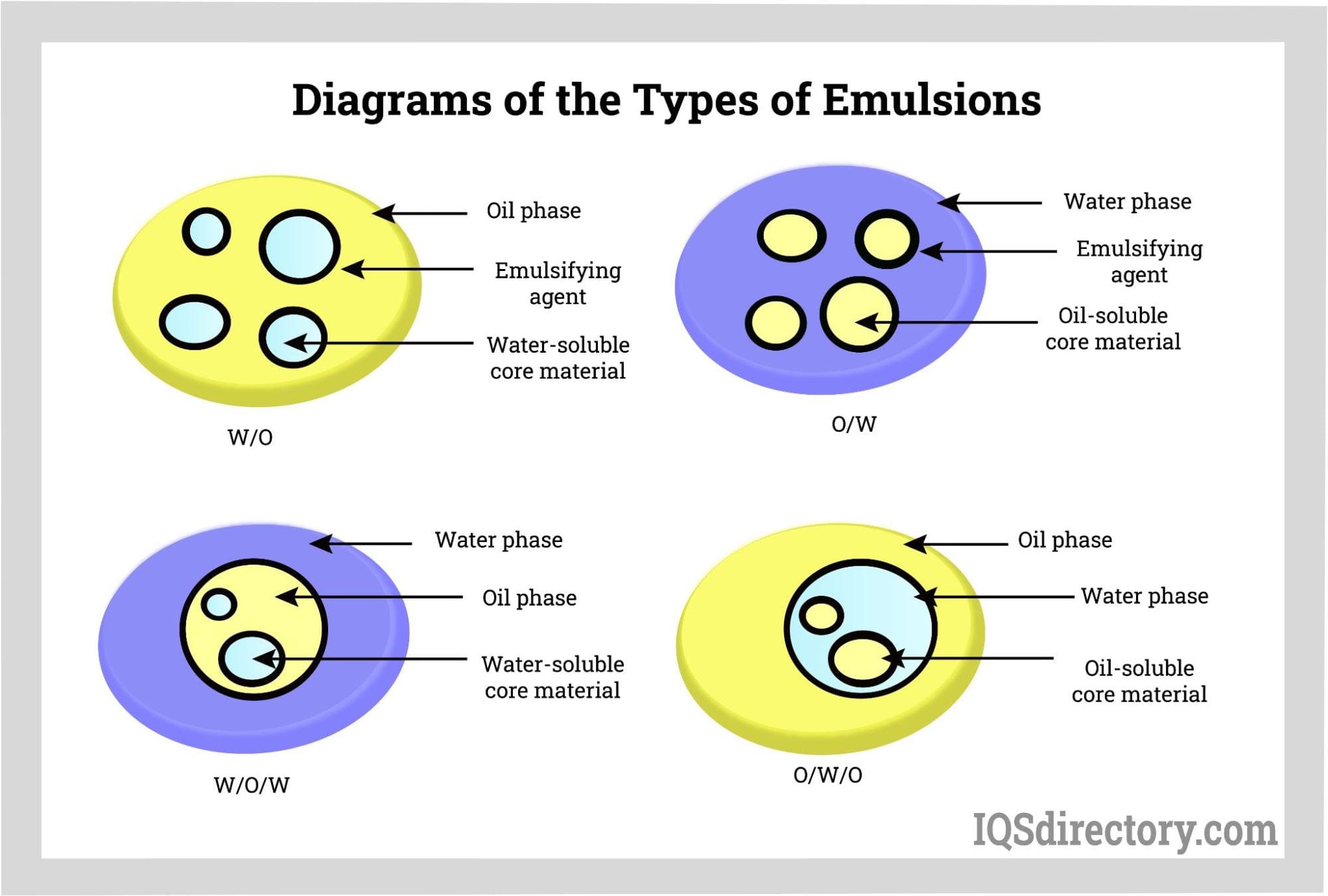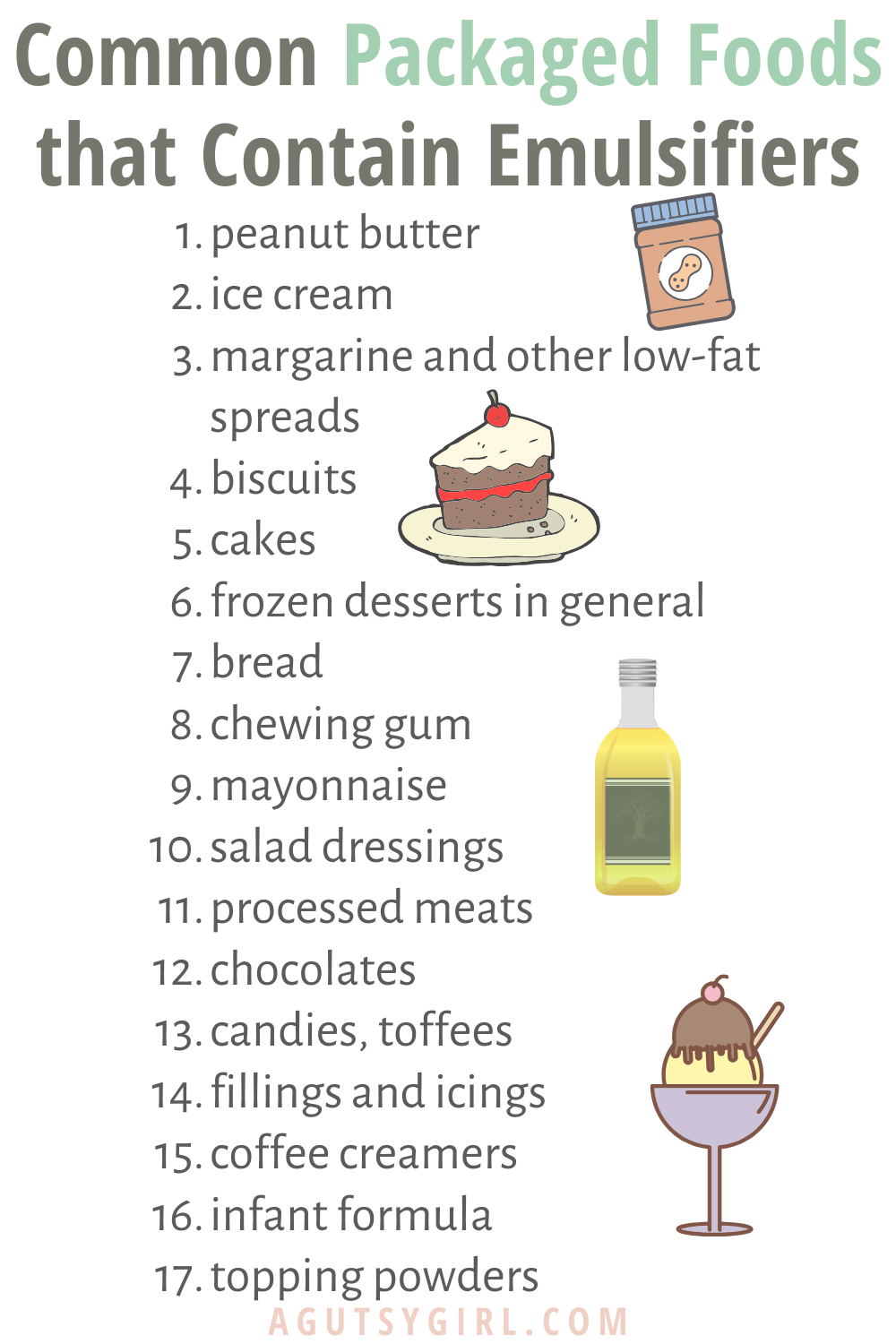A Beginner's Guide to Emulsifiers in Household Products
A Beginner's Guide to Emulsifiers in Household Products
Blog Article
The Science Behind Emulsifiers and Their Importance in Modern Manufacturing
Emulsifiers play a vital role in contemporary manufacturing, serving as the unhonored heroes that mix oil and water for a large range of items. You could not recognize how these compounds enhance appearance and stability, but their effect is substantial throughout industries. As customer choices change in the direction of cleaner labels, the demand for cutting-edge emulsifiers is growing. What does this mean for the future of product formula? Allow's explore further.
What Are Emulsifiers?
Emulsifiers are vital agents in the world of food and item production, acting as the glue that binds 2 or else immiscible fluids, like oil and water. Typical examples include lecithin found in egg yolks and soybeans, and mono- and diglycerides utilized in various processed foods.

When you work up a salad dressing or enjoy a luscious dessert, emulsifiers aid keep that best texture. They guarantee your items have a consistent mouthfeel and appearance, improving your total experience. Without emulsifiers, many foods would certainly divide, leading to unwanted appearances and flavors. So, following time you enjoy a smooth sauce or spread, keep in mind the unhonored heroes-- emulsifiers-- that make it all possible.
The Chemistry of Emulsification
When you blend oil and water, you may notice they do not mix quickly; that's where the chemistry of emulsification comes into play. Emulsification occurs when small beads of one fluid disperse in one more, creating a stable mixture. This takes place since oil and water are immiscible because of their differing polarities-- water is polar while oil is non-polar. To conquer this difficulty, emulsifiers are employed.
These molecules have a hydrophilic (water-attracting) head and a hydrophobic (water-repelling) tail. When you include an emulsifier, its particles position themselves at the oil-water interface, lowering surface stress and permitting the beads to mix. The emulsifier forms a protective layer around each droplet, avoiding them from integrating back into separate layers. Comprehending this chemistry is crucial for achieving stability in products like dressings, creams, and sauces, making emulsification important in contemporary manufacturing.
Kinds Of Emulsifiers
Different kinds of emulsifiers play crucial functions in supporting mixtures of oil and water. Natural emulsifiers, like lecithin from egg yolks or soy, are derived from plants and pets, making them prominent in food items.
On the other hand, artificial emulsifiers, such as mono- and diglycerides, are chemically engineered to boost stability and rack life. They're typically made use of in refined foods and aesthetic products.
Additionally, you might come throughout non-ionic, anionic, and cationic emulsifiers, each with unique residential or commercial properties that affect their efficiency. Non-ionic emulsifiers, for instance, work well in a large range of pH levels, while anionic emulsifiers have a tendency to execute much better in alkaline problems. Understanding these kinds can help you pick the appropriate emulsifier for your certain application.
Systems of Emulsion Formation
Comprehending how emulsions create is important for developing secure mixtures of oil and water. Solutions happen when you spread small beads of one fluid right into another immiscible liquid, such as oil in water. This procedure calls for energy, often provided with agitation or blending. When you present an emulsifier, it minimizes the surface stress between the two fluids, permitting them to blend more easily.
The emulsifier particles have a hydrophilic (water-attracting) head and a hydrophobic (oil-attracting) tail. When you include an emulsifier, these particles organize themselves at the oil-water user interface. The hydrophilic heads connect with water, while the hydrophobic tails anchor into the oil. This develops an obstacle that maintains the beads, avoiding them from integrating.
Applications of Emulsifiers in Various Industries
Emulsifiers play an important duty across various markets, making your preferred foods smoother and much more satisfying. In cosmetics, they improve item appearance and stability, making sure a positive application experience. Plus, in drugs, they aid supply vital components successfully, enhancing overall efficiency.
Food Market Makes Use Of
While you may not recognize it, emulsifiers play an important role in the food market, boosting the structure, security, and life span of many products (Emulsifiers). They're commonly located in salad dressings, sauces, and mayonnaise, aiding to mix oil and water for a smooth, constant item. In baked items, emulsifiers enhance dough handling and maintain moisture, leading to a better structure and extended quality. They're also vital in dairy products, where they support solutions in creams and gelato, protecting against splitting up. Even in snacks, emulsifiers assist maintain crunchiness and prevent stagnant click to find out more flavors. By making sure uniformity and top quality, emulsifiers are significant to providing the scrumptious items you enjoy everyday, making them an essential component in contemporary food manufacturing.
Cosmetic Solutions Benefits
When it comes to aesthetic formulas, emulsifiers are important for creating items that really feel luxurious and execute properly. You'll notice that emulsifiers enhance item stability, avoiding splitting up and prolonging rack life. On the whole, emulsifiers play an important role in supplying premium cosmetic items that meet your charm demands.
Drug Applications Summary
In the pharmaceutical sector, emulsifiers are vital for developing efficient medicines. You'll find emulsifiers in various dosage forms, like creams, ointments, and fluid suspensions, boosting the bioavailability of drugs.
The Influence of Emulsifiers on Item High Quality

By guaranteeing steady solutions, you decrease the threat of spoilage and extend rack life, inevitably saving you money and time. You'll likewise locate that emulsifiers can enhance the bioavailability of energetic components in your products, making them more efficient for customers.
In addition, they allow you to develop ingenious formulas that fulfill diverse consumer requirements. Whether you're crafting a velvety clothing or a luxurious lotion, emulsifiers are essential for achieving the desired outcomes. Simply put, by comprehending and leveraging the effect of emulsifiers, you can greatly elevate the quality of your products.
Future Fads in Emulsifier Advancement
As the demand for cleaner labels and sustainable items increases, the advancement of new emulsifiers is readied to evolve significantly. You'll you can check here discover a change towards plant-based and all-natural emulsifiers, driven by customer choices for ingredients that are eco-friendly and much less refined. Innovations in biotechnology will likely enhance the functionality and effectiveness of these emulsifiers, permitting manufacturers to produce stable formulas with less additives.
You may also see a rise in multifunctional emulsifiers that not just stabilize emulsions but likewise enhance flavor, appearance, or nutritional worth. This pattern can streamline component checklists while boosting item performance.
Additionally, with breakthroughs in nanotechnology, emulsifiers can be engineered at the molecular level to achieve extraordinary security and performance. Emulsifiers. As you discover these fads, you'll find that the future of emulsifier advancement is not simply about performance, yet additionally regarding accepting sustainability and transparency in ingredients
Often Asked Concerns
Are Emulsifiers Safe for Usage in Food Products?
Yes, emulsifiers are typically risk-free for usage in foodstuff. They have actually been extensively studied and accepted by food security authorities, so you can enjoy your preferred foods without fretting about their effect on your wellness.
Can Emulsifiers Be Derived From All-natural Sources?
Yes, you can derive emulsifiers from all-natural resources. Components like lecithin from egg yolks or soybeans and casein from milk prevail. These natural emulsifiers assist maintain combinations without synthetic additives, making them popular have a peek at this website in various items.

Just How Do Emulsifiers Affect Life Span of Products?
Emulsifiers stabilize mixes, avoiding separation and putridity - Emulsifiers. By preserving harmony, they extend items' shelf life, making sure quality and quality. You'll observe that emulsifiers assist keep your favorite foods and cosmetics performing more than time
What Are Possible Side Effects of Emulsifiers?
You may experience gastrointestinal issues when consuming products with emulsifiers, as they can disrupt intestine bacteria. Some researches suggest potential web links to inflammation or allergies, yet more research is required to completely recognize these results.

Are There Alternatives to Conventional Emulsifiers?
Yes, there are choices to typical emulsifiers. You can discover alternatives like natural gum tissues, starches, or lecithin. Each different deals unique residential or commercial properties, so experiment to discover what jobs best for your details application.
Report this page